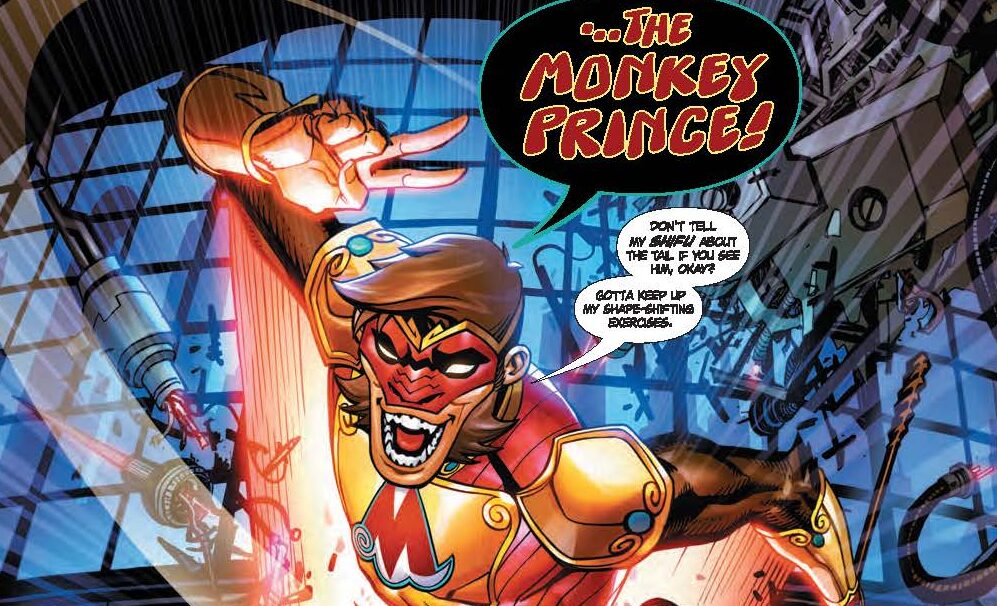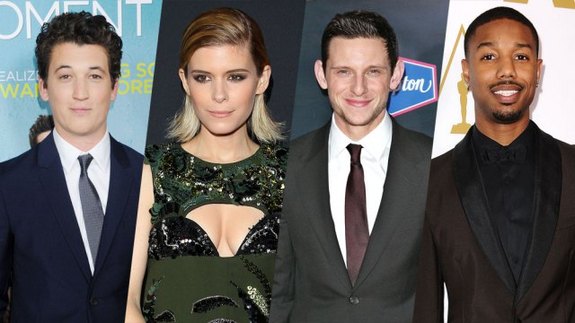
Nerds the world over lost their shit today when Fox confirmed rumours circulating in the wind since last year that the studio had finally found their new Fantastic Four in a scheduled movie reboot that will likely be based on Marvel’s Ultimate universe iteration of the superhero team. In particular, nerds were shocked at the confirmed news that Michael B. Jordan (Fruitvale Station, Chronicle) would be cast in the role of Johnny Storm, aka The Human Torch.
More specifically, they were horrified that a Black actor would be playing a character who is both White and Sue Storm’s brother in the comics.
On the flip side, enthusiasts are quick to argue that anyone who’s upset about this news are clearly racist. And, to be true, there’s plenty of racism flying around the interwebs today over Jordan’s casting, most notably on Twitter.
But, let me be clear: I’m somewhere in the middle.
And, more importantly, that make me neither someone who doesn’t give a shit about diversity in comics, nor a seething racist. Yes, people, there is a third position to have here.
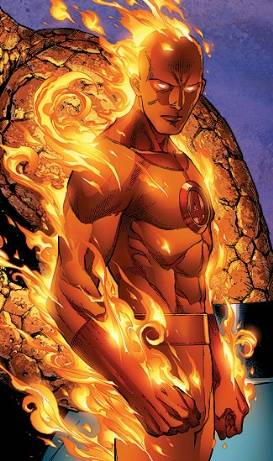
Most of the people upset about Jordan’s casting cite two pieces of “evidence”: 1) Johnny Storm is White in all his comic iterations, and 2) his sister is White.
Look, I have no problem with Johnny Storm being a Black dude. Writers are writers — they are paid pretty good money to come up with characters and stories based on some starting input material (often ideas that they have no initial control over). Is there a way that even a semi-skilled writer could come up with a believable Johnny Storm who is also proudly — or at least meaningfully — African American? Of course there is. There’s no rule out there that only White people spontaneously combust. The Human Torch doesn’t run around with an “I am White” sign plastered to his forehead. Johnny Storm can be a Black man, and not lose the core essence of his character.
Furthermore, everyone freaking out about Johnny and Sue Storm being related even though they are different colours clearly have never stepped out of their comic book stores and into the real world. Newsflash: in America, families don’t actually all involve a mommy, a daddy, and a brood of colour-matching children. There are several obvious ways to have Jordan and Mara play siblings: like they were raised in a mixed-race foster family, or they are half-siblings. The fact that Mara and Jordan don’t represent a skin-toned “matching set” don’t preclude them from playing siblings. What is this, a Cheerios commercial?
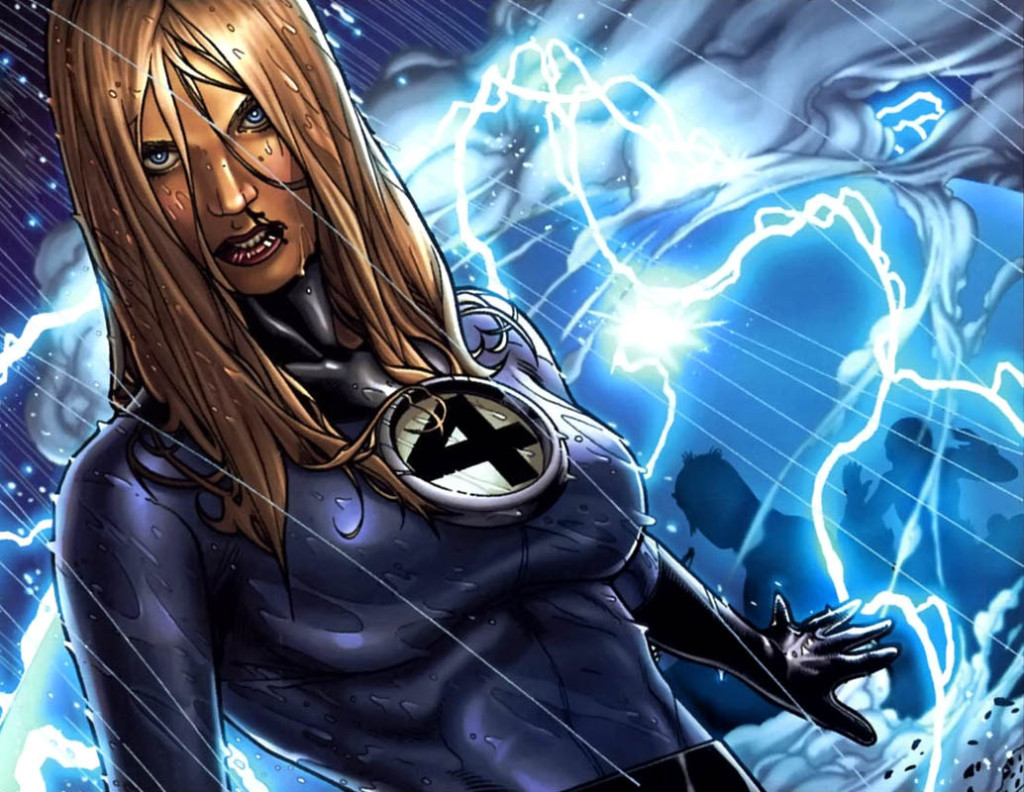
And, in general, it’s worth noting that of the four actors cast in this upcoming film, Michael B. Jordan is the one with the highest star power and the most “superhero” experience under his belt. I have no idea who these other three actors are (no, I don’t watch House of Cards), but they don’t have the kind of star power of Jordan. Further, I trust Michael B. Jordan to carry a film — see, Station, Fruitvale — but I don’t know enough about these other young actors to be confident that they could act their way out of a cardboard box. So, Jordan as The Human Torch actually gives me some confidence that this film will not suck.
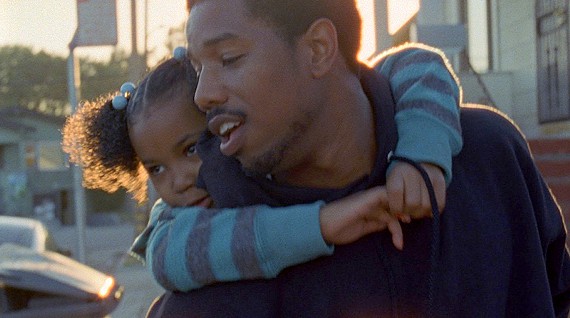
All that being said, I do — as I mentioned — have some reservations about Michael B. Jordan’s casting. Progressive nerds have been literally tripping all over themselves to laud Michael B. Jordan’s casting — under the assumption that being anything other than wildly enthusiastic makes you a regressive racist. But, unlike ThinkProgress or the Atlantic, I just have a hard-time breaking out the parade floats on this one.
Like most other nerds of colour, I agree that the traditionally White (and heterosexual and male) genre of comics needs a steady injection of diversity in its pages. I support efforts to bring superheroes of colour to my favourite comics, and yes, I gravitate towards superheroes (like Jubilee, obviously) whom I relate to. But, unlike most nerds of colour, I am generally suspicious of efforts to achieve diversity by advocating blind racial cross-casting of traditionally White superheroes at the casting stage, as if this racial casting swap is alone sufficient to transform a White superhero into a person of colour.
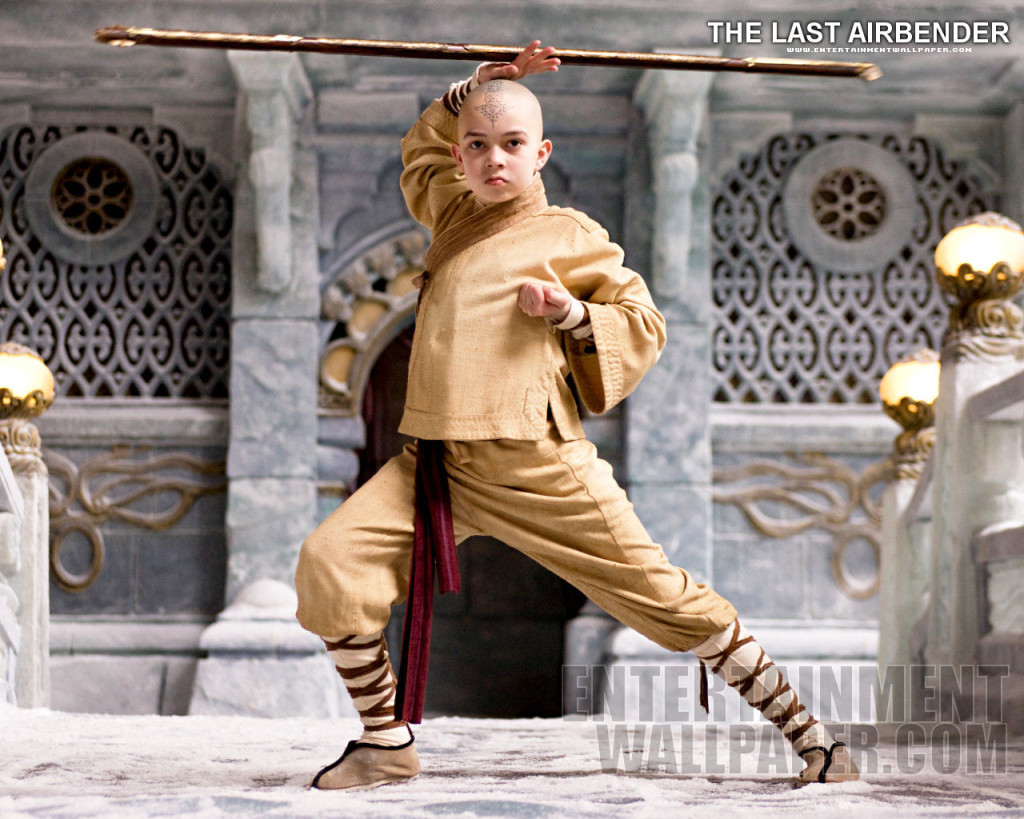
I find transracialization troublesome because it asserts that the casual racial swap from Whiteness to Blackness isn’t particularly impactful to the character. If so, it means that Blackness isn’t a significant contributor to the formation of self-identity. When a main character like Johnny Storm is transracialized using a Black actor like Michael B. Jordan, the assumption is that Johnny Storm becomes Black. However, if allthat happens to re-render Johnny Storm is this casting decision — or specifically, if the casting decision happens in the absence of a script written to create a living, breathing character to embody Michael B. Jordan’s Blackness — than what the producers of Fantastic Four have done is use Jordan’s melanin as a racial costume change for the Johnny Storm character. They treat race like they treat a mask, a cape, or some spandex. They — quite literally — assert that race is merely skin-deep.
In my opinion, that’s a patronizing, disrespectful, and wholly heartless notion of what it means to be a person of colour, and one that is too frequently informed by people who have no earthly idea what it means to be a person of colour.
I’m not Asian because I look “Asiatic”; my “Asianess” is an integrated part of my identity that influences my personality, my heritage, and how I approach the world. Every part of me — both in terms of character and behaviour — originates out of a self-identity that is Asian American (and woman, and heterosexual, among others). My race colours (pun intended) not just how I look, but also who I am.
In my mind, the decision to reinvent Johnny Storm as a Black man requires not just the casting of Michael B. Jordan as Johnny Storm, but also a script that can translate what Blackness means for a character like Johnny Storm, and to do so in a way that feels real, human, and authentic to the Black experience. I want Johnny Storm’s Blackness to not just be an aesthetic change, but to mean something.
Let’s be clear: I’m not advocating that Black Johnny Storm needs to have an after-school special “race moment”. He doesn’t need to have an explicit race identity crisis. Alternatively, he doesn’t need to speak jive or wear hip hop gear or embody some other wholly cliched, potentially racist, signifiers that lazy writers often use, and even more often use in comics as shorthand for Blackness.
But, if race is a meaningful component to identity, than transracialization is — necessarily by definition — a significant change to a character, one that insists that Black Johnny Storm is not the same White Johnny Storm that you grew up with.
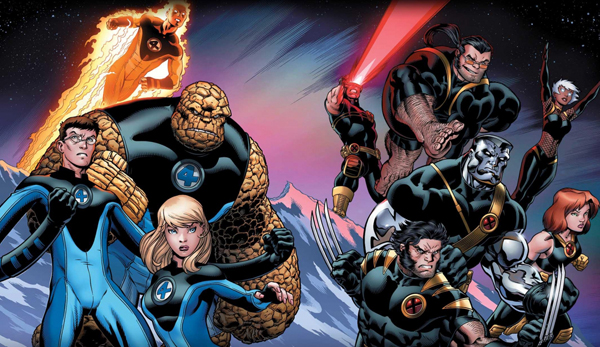
Let’s say that in the Ultimate Universe film adaptation, Johnny Storm — brother to super-genius Sue Storm — is Sue’s adopted half-brother, combining both possible origins I’ve proposed above. A talented writer would use that information to maybe interpret Johnny Storm as a child who longs to fit in in with his adopted family, maybe after he is taken in by his father’s second family after his mother is killed in a car accident. Maybe although he’s bright enough to be at the Baxter Building, he always feels inferior to his super-genius biologist sister, a feeling of rejection compounded perhaps by the fact that his father remarried after separating from his mom. Maybe to compensate for all this insecurity as well as the grief over his mother’s death, he adopts the persona of a brash kid with a chip-on-his-shoulder. None of this requires Johnny to be White, right?
But, this story should be nuanced if Johnny lives the exact same origin story, but as a Black teenager. Let’s imagine Johnny is the Black transracial adoptee, living in an all-White uber-private charter school around a bunch of White super-geniuses, and specifically in the shadow of his beautiful and intelligent adoptive half-sister. Do we really imagine that this wouldn’t create subtle differences in how Johnny Storm acts and reacts, compared to if he has White privilege? Real transracial adoptees live this identity every day, and it has created a rich and varied — but more to the point, distinct — narrative that you can read about in any one of several blogs on the subject. So, the notion that throwing Michael B. Jordan into a role written from an implicitly White perspective that lacks an acknowledgement of race is ungrounded in a reality where Blackness as an identity actually matters.
Instead, it quite literally asserts that Johnny Storm’s Blackness in this Fantastic Four reboot will be exactly skin-deep.
(And maybe you might go through the whole thought exercise as a writer of examining how Jordan’s Blackness might impact the writing of his character and end up with the exact same script. That’s fine — my point is that the thought experiment is a necessary part of the process here. It’s not that I’m arguing there are only limited ways to be Black; rather, I’m arguing that writers need to respect Blackness by considering it when they write a Black character, not be given an excuse to a priori ignore race’s impact on their writing.)
Historically, comics have largely proven themselves incapable of a nuanced conversation on race; the Marvel Studios Universe even less so. Instead, they typically build post-racial worlds that simply ignore the realities of race, and then populate those worlds with people of different appearances but similar approaches to life and “superhero-ing”.
Idris Elba’s Heimdall, for example, is a Black Norse god living in an otherwise all-White Asgard, and his racial difference appears to be entirely irrelevant to his identity. While this might be reasonable in the fictional kingdom of Asgard, that post-racial fantasy is also largely ungrounded in the reality of young Black kids who might be looking to Heimdall for inspiration. In the upcoming X-Men film, both Blink and her brother will be played by Asian actors, but their race is unlikely to make a difference at any point.
In short, diversity advocates want race injected into contemporary conceptions of superhero worlds where race literally doesn’t matter.

But, say my naysayers, does it even make sense to argue about injecting the realities of race and race identity in a world where Johnny Storm turns into a living breathing fireball? How can we talk about realism in a world where people wear their underwear on the outside, and do so without any trace of irony?
Well, yes and no. I like my superhero films like I like my superhero comics: as a medium for exploring contemporary people and contemporary culture. I like superheroes grounded in a world that is familiar to me. I think injecting complex issues like race into a world where superheroes can fly is a poignant metaphor for how people of colour interact with the racialized, and often racist, world we live in today. As a child, I gravitated towards Jubilee and Psylocke and other superheroes who looked like me not just because they looked like me, but because their stories and their evolving self-identity as Asian American women were relatable to me. Noah Berlatsky defends Jordan’s casting by citing other instances of diversifying superheroes. Aside from a troublesome paragraph where he conflates race with ethnicity, Berlatsky writes:
But then, how account for the fact that in the comics characters like Iron Man, Spider-Man, and Green Lantern have, at various times, been black?
Similarly, other fans have cited the success of Samuel Jackson as Nick Fury. But, to be clear, all of these examples involve an explicit reimagining of a Black man adopting a mantle of an existing superhero. Miles Morales, for example, isn’t a Black version of Peter Parker; Morales is a Black kid who decided to be Spiderman after Parker (erhm, spoiler?) died. John Stewart’s Green Lantern isn’t a Black version of Hal Jordan, he is a distinct Black person who explores his Blackness in relation to the depressed neighbourhood he grew up in. Even Samuel Jackson’s Nick Fury is a live-screen adaptation of a pre-existing Black Nick Fury who was created (inspired by Samuel Jackson’s movie personas) for the Ultimate Universe, and who has a distinct personality from the White Nick Fury of the 616 universe. In all cases, Blackness occurred not through a quick transracialization, but through the creation of entirely new characters; these character then became avenues through which comics could — sometimes deftly and sometimes clumsily — explore race and race relations. In fact, I believe in injecting diversity into comics because the narratives of people of colour have been generally unexplored in this medium to-date. When we integrate more diverse superheroes into comics, we open an entirely new collection of great stories that comics have yet to tell, and I think that is a worthy goal.
But, my year blogging with the Nerds of Color have shown me that not everyone is interested in superhero comics as parables for the human condition. Many fans like their comic books as explicit — and self-conscious — fantasy, where heavy issues like racism, classism, ableism, and homophobia just don’t exist (and yes, it’s a valid way to love comics, it’s just not my thing). Consequently, many fans gravitate more towards the Marvel model of superhero films and comic bookstories — where all problems can be solved with your fists. In such films, there’s limited interest in what happens when the superhero in question hangs up his cape for the night. Many fans see comics as pure escapism, one that must remain unmarred by the weightiness that comes hand-in-hand with race as going more than skin-deep.
I’m a Nolanverse girl philosophizing about race to a nerd community that prefers The Avengers. In the Marvel Studios model of film-making, as best exemplified by The Avengers, superheroes are less people and more avatars for an array of superpowers. Less time is spent on examining Thor’s identity as the prodigal son or discussing how the freshly-thawed Steve Rogers feels about waking up in a post-Jim Crow America, and more time is spent with Mjolnir flying through three different dimensional portals to smack Loki in the head, or the Hulk tearing New York City apart while Black Widow does back-flips.
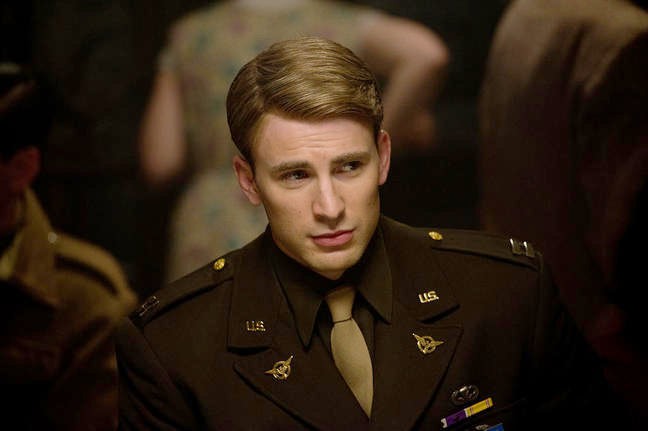
In a Fantastic Four film that is mostly concerned with presenting how cool it is that Johnny Storm can turn into a living, breathing inferno — and yes, it’s fucking cool — skin-deep race is all that will really matter, because none of the characters are ever injected with any real humanity anyways. Marvel is intensely aware that they aren’t presenting us with nitty-gritty and flawed people; rather they are selling non-descript avatars, easily consumable and readily worshipped (and thus powerful mechanisms to drive toy sales). When you are selling superhero characters as Halloween costumes, it only makes sense to expand your market-share by diversifying.
Sure, when you introduce characters of colour into superhero comics, you give kids of colour people they can pretend to be on playgrounds. But kids aren’t constrained to only pretend to be characters who look like them. Kids will pretend to be anything they think is cool. When I was a kid, I pretended to be Jubilee. I also pretended to be a care bear, a talking chipmunk, and a flying pony. While it’s nice to give kids superheroes who look like them, I think it’s far more meaningful to give kids superheroes who also offer a broad and culturally diverse range of non-White experiences and narratives.
When Michael B. Jordan’s melanin is sufficient to make Johnny Storm a Black superhero, than we argue that the exact same stories and dialogue that have been written with Johnny Storm as a White guy in mind work when a Black man brings the script to life. If so, this sends the message that writers don’t actually have to write about the Black experience when they write about Johnny Storm as a Black man; they can write about a White Johnny Storm and then swap their character palette at the end, and magically achieve the Black experience. They don’t have to write about different people, or different lived experiences because, according to this model, at the writing stage everyone’s the same. That’s not diversifying comics. It’s quite literally the superficial appearance of diversity.
Like I said above, maybe Fox will surprise me. Maybe Jordan’s Blackness will be well-treated in this Fantastic Four reboot. I haven’t seen this movie yet, and ultimately want to withold judgement until then.
But, in summary: internet, please forgive me for not being thrilled with the news of Michael B. Jordan as Johnny Storm. Yes, I’m happy Michael B. Jordan (who, all race stuff aside, will probably be the best thing about the Fantastic Four reboot) is getting work, and I think he’ll probably rock the hell out of some fireballs.
But, while Jordan’s casting renders Johnny Storm Black, I worry that Black Johnny Storm won’t be written as meaningfully Black. Comics have almost never dealt with critical race theory well, and I have no reason to be optimistic that they’ll be starting now.
And, finally, it doesn’t make me racist for pointing that out.

